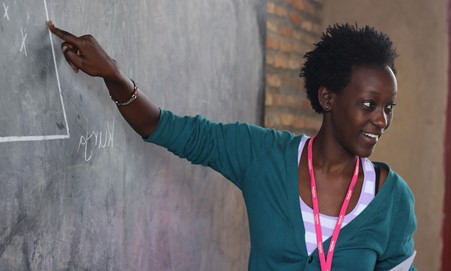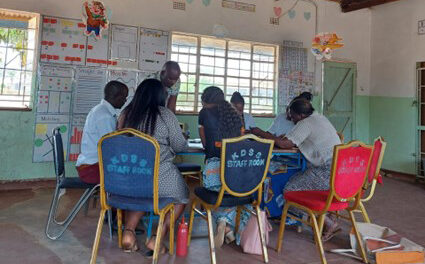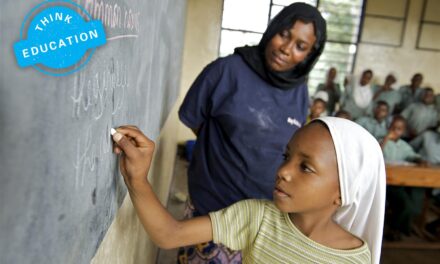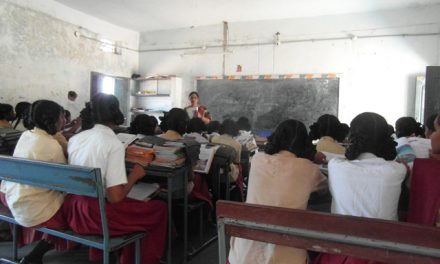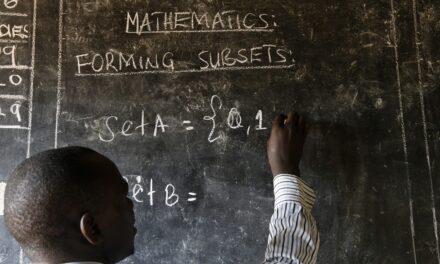This blog was written by Laterite and the REAL Centre and reflects on their work as part of the Mastercard Foundation’s Leaders in Teaching initiative in Rwanda. It was published on the Laterite website on 5 October 2020.
Education in Rwanda and around the world has been heavily disrupted by the COVID-19 pandemic. This is the case not only for students, but also for teachers who face significant disruptions to their own professional development.
The theme for World Teachers Day this year is: leading in crisis, reimagining the future. The day provides the opportunity to celebrate the teaching profession, take stock of achievements, and draw attention to teachers’ voices.
As learning partners on the Mastercard Foundation’s Leaders in Teaching initiative, Laterite and the Research for Equitable Access and Learning (REAL) Centre at the University of Cambridge are responsible for generating evidence of improved teacher quality and student learning on a range of program activities to improve teaching quality in Rwanda. This has included work to understand how teachers are coping with the COVID-19 crisis, and how implementing partners are pivoting their programs to best support teacher and student learning in this time. On World Teachers Day, we are proud to share more about the part we play in finding evidence-based ways to support teachers, especially in exceptional circumstances such as these.
Supporting teachers to adapt to the crisis
Leaders in Teaching implementing partners have made impressive strides to adapt their programs to the changing context. Our new brief outlines some of their achievements, including bringing teacher training online; creating new communities of practice among teachers; and using new mediums to deliver learning activities including TV and radio lessons.
Drawing attention to the voices of teachers
Laterite and the REAL Centre also completed phone surveys with almost 600 teachers and head teachers across Rwanda in August. The phone surveys focus on measuring the effects of school closures on continuation of school via other means, such as distance learning. Another aim is to understand how prepared schools are to re-open, both in terms of mitigating learning losses as well as implementing health and safety measures.
The findings will contribute to policy discussions on strategies and contingencies for re-opening schools in Rwanda. We are in the process of sharing findings with the Rwanda Education Board, and will be making them available more broadly soon.
Ongoing work to understand how to improve teaching quality in Rwanda
Laterite and the REAL Centre have been working to collect data on teaching quality and student learning in secondary STEM education in Rwanda. To date this has included administering student and teacher surveys and assessments; using new tools to observe teaching practices in the classroom; and asking teachers about their views on what makes a good teacher in order to develop tools that are context-specific. We expect that these findings will contribute to the understanding of teaching quality in secondary education in Rwanda, and in particular the links between teacher quality and student learning performance.
Finally, as schools re-open, we aim to continue our research with students and teachers at the secondary level. We hope this research will enable us to develop and contribute to insights on secondary level student learning and teacher knowledge in Rwanda.

